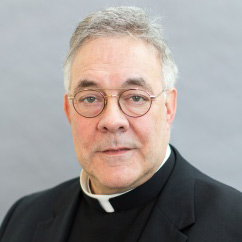In a new column in The Detroit News, I set authentic environmental stewardship against the goings-on at the recently concluded UN Copenhagen conference. A slightly longer version of this commentary will be published tomorrow in the weekly Acton News & Commentary. Merry Christmas to all!
The not-so-subtle politicizing of science revealed by the Climategate affair, along with the alarmist and at times downright silly antics of some proponents of environmentalism (a word that has acquired numerous shades of creedal commitment), ought not drive reasonable people to abandon a sense of moral and civil obligation for the care and well-being of the planet.
The world that surrounds us and all the creatures upon it have human beings as their protectors. The human family has a primordial calling to “care and tend the garden.”
The point of conjecture now, however, is often over whether this world is indeed a garden — to be cultivated and tended, with care, reason and even love — or whether, as some of those gathered at the UN climate change conference in Copenhagen demonstrated last week, the world is best seen as a jungle, to be left wild, untouched by human hands and thereby preserved unsullied and uncontaminated.
In the vocabulary of too many environmentalists, humans appear as the greatest threat to creation, at times leaving the impression that the human family is the most unnatural thing in nature.
The world and the people who inhabit it are at the center of the concern and love celebrated at Christmas. The controlling anthropology of the Nativity says that the human person, created in the image of the Creator, and the environment humans live in, is of such importance to their Creator that He chose to insinuate Himself into this world so as to rectify the effects of the disorder of creation brought about by human rebellion against the natural order and their origin.
This anthropology and cosmology presupposes that the creation has a purpose and was designed by a rational mind that imbued it with meaning. Ask yourself, which provides more protection for the environment: this view of the natural world that contends the order of the universe reflects the intentionality of a Creator who, in turn entrusts beings created in His image to care for and bring forth from creation its flourishing through a kind of environmental stewardship; or, the belief that the world is a chance collision of inanimate material forces that somehow produced being with no intrinsic dignity much less an august vocation to tend and perfect creation?
If you can grasp the disparate approaches to life of these two ideas, then you can understand why the rejection of a secularism hostile to the transcendent is so critical, not merely for some kind of abstract “spiritual” reason, but for the concrete care of our world and for the construction of a civilization based not on some assemblage of facts, but on the meaning behind and underneath the facts.
Christmas is precisely that. In the narratives we will hear and read in our homes and in our churches, we will be reminded of a world of infinite value to God, created with love and care, and entrusted to the human family to be tended and brought to its proper fruition. This is the message of God’s entrance into human history in the form of a vulnerable baby, born at a particular time and in a particular place, through the agency of a particular woman. It is the story of the Word who created the world, and who was rejected by that world.
The incarnation of Christ in human form offers hope to all “who dwell in darkness and the power of death.” It is this belief that protects, sustains and gives meaning — to our environment, and to much, much more.
How sad that message did not seem to be heard in Copenhagen.

